IATSE 114 Celebrates 120 Years of Stage Shows in Portland

IATSE 114 members at the St. Patrick's Day Parade in March, 2024.
On Thursday, August 15, IATSE Local 114 celebrated its 120th anniversary at the Elks Club in South Portland. The local was formed on August 28, 1904 when a group of stage hands led by 30-year old Daniel J. Lawler affiliated with the National Alliance of Theatrical Stage Employees, becoming the first stage hands’ union in the state. The union — which later became known as the International Alliance of Theatrical Stage Employees, Moving Picture Technicians, Artists and Allied Crafts of the United States, Its Territories and Canada (IATSE) — was founded in 1893 when stagehands from eleven cities met in New York to organize for fair wages and better working conditions for their members.
Born in Birkenhead, England in 1874, Lawler immigrated with his family to the United States at the age of 12. He later enlisted in the Eight Calvary Regiment and was deployed to the Dakotas to fight indigenous resistance to colonization. He later enlisted in the 1st Reg. Marine Infantry in 1898 to fight in the Spanish American War. After his military service, Lawler worked as a slate roofer in Portland, installing the roof on the historic St. Dominic Catholic Church, which houses the Irish Heritage Center today. Later on,, he began working at the old Jefferson Theatre on Free Street, where he began organizing his fellow stagehands.
Lawler served as the President of Local 114 for many years as he worked as a stage carpenter, setting up shows in Maine and for theater tours across the nation, until his health declined in 1940. His union brothers continued to pay his dues for him when he couldn't work for the final six years of his life.
PHOTO: Interior of the Jefferson Theatre.
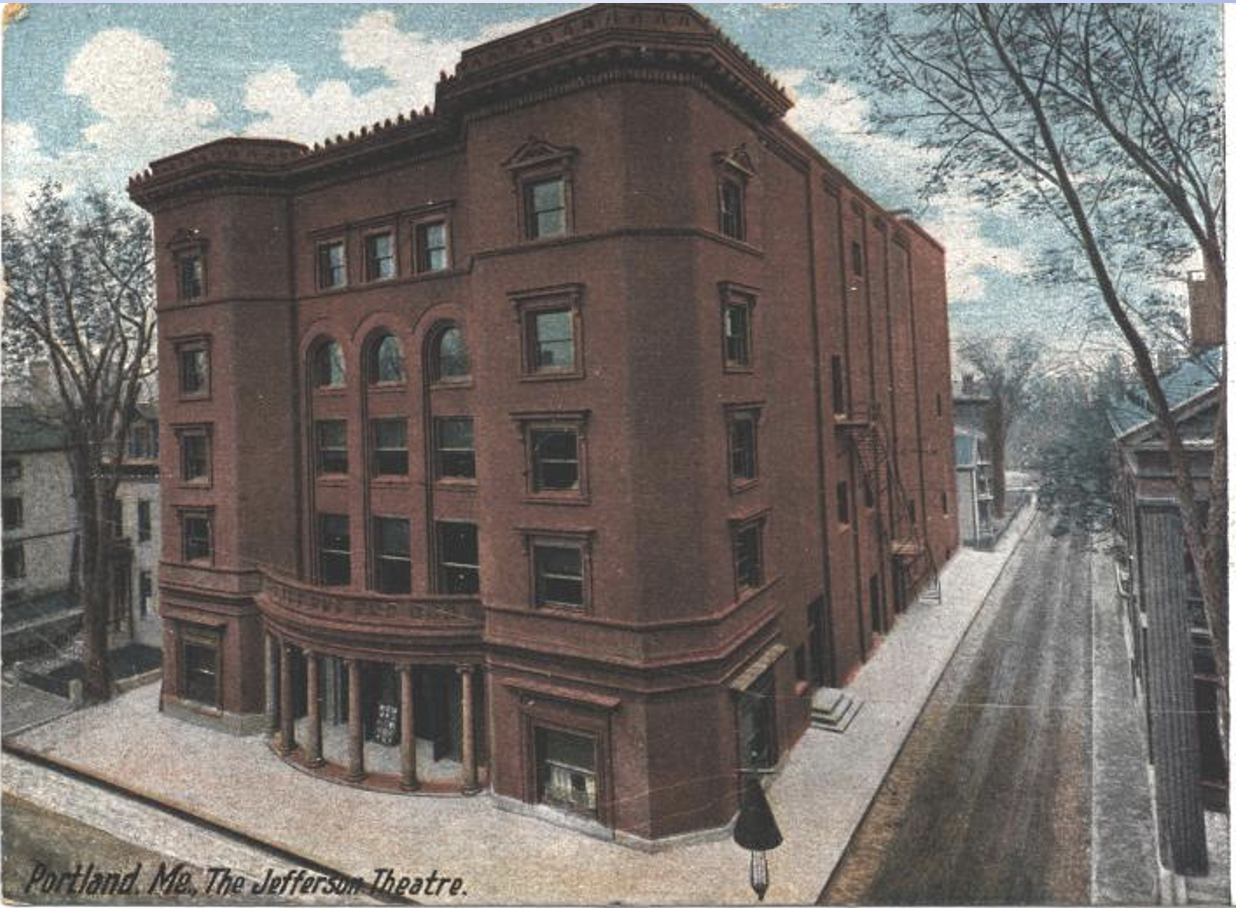
PHOTO: Exterior of the Jefferson Theatre.
A number of the founding members of Local 114 had previous experience with collective action. While working at the Lovell Bicycle factory in South Portland in the late 1890s, Local 114 recording secretary L.G. Woodbury helped launch a cooperative store for workers. The union's financial secretary P.H. Silk was also a member of the Brotherhood of Railroad Freight and Baggage Men of America,
When Local 114 was established, it was the height of Vaudeville era when traveling stage shows frequently came to town to perform light hearted comedic acts interspersed with songs. They also performed ballets, ventriloquist acts, minstrel shows and acrobatics. Built in 1897, the elaborately decorated Jefferson Theater was named after the famous 19th century comedian Joseph Jefferson. During its heyday between 1897 and 1910, the Jefferson featured plays, ballets and operas with some the era’s most popular stars including French stage actress Sarah Bernhardt, Canadian film star Marie Dressler, actress and singer Lillian Russell, actress and Rockland, Maine native Maxine Elliott and starlet Ethel Barrymore.
According to the Portland Women’s History Trail, when Bernhardt first came to Portland in 1906, the Irish fraternal organization the Ancient Order of Hibernians “graciously stepped aside from its own booking” to accommodate her performance at the Jefferson. As a stagehand and an officer in the Hibernians, it’s likely Lawler was involved in that decision. Later on, the Jefferson largely hosted burlesque shows and films until it closed in 1933.
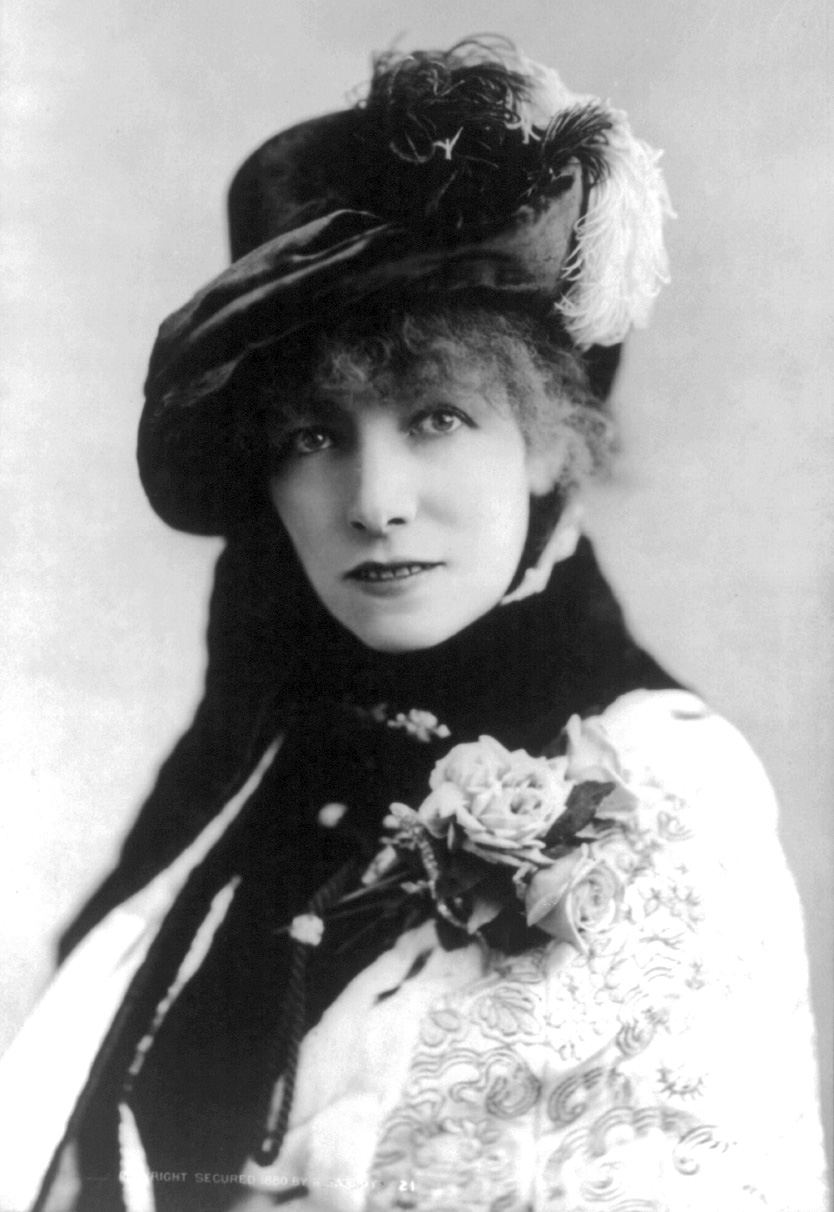
PHOTO: French actress Sarah Bernhardt
In addition to the Jefferson, other unionized theaters from that era included the Portland Theater at the corner of Preble and Congress Streets, and the New Portland and B.F Keith theaters on Preble, the Gem on Peak's Island, the Elm on Elm St., the McClullum in Cape Elizabeth, the State Theater, the Strand on Forest Ave and the Casco Theater where Geno's Rock Club is today. Local 114 also worked at the Gayet on Congress St., later known as the Colonial, where 1200 shipbuilders rioted following the abrupt end of a midnight stag show in 1943.
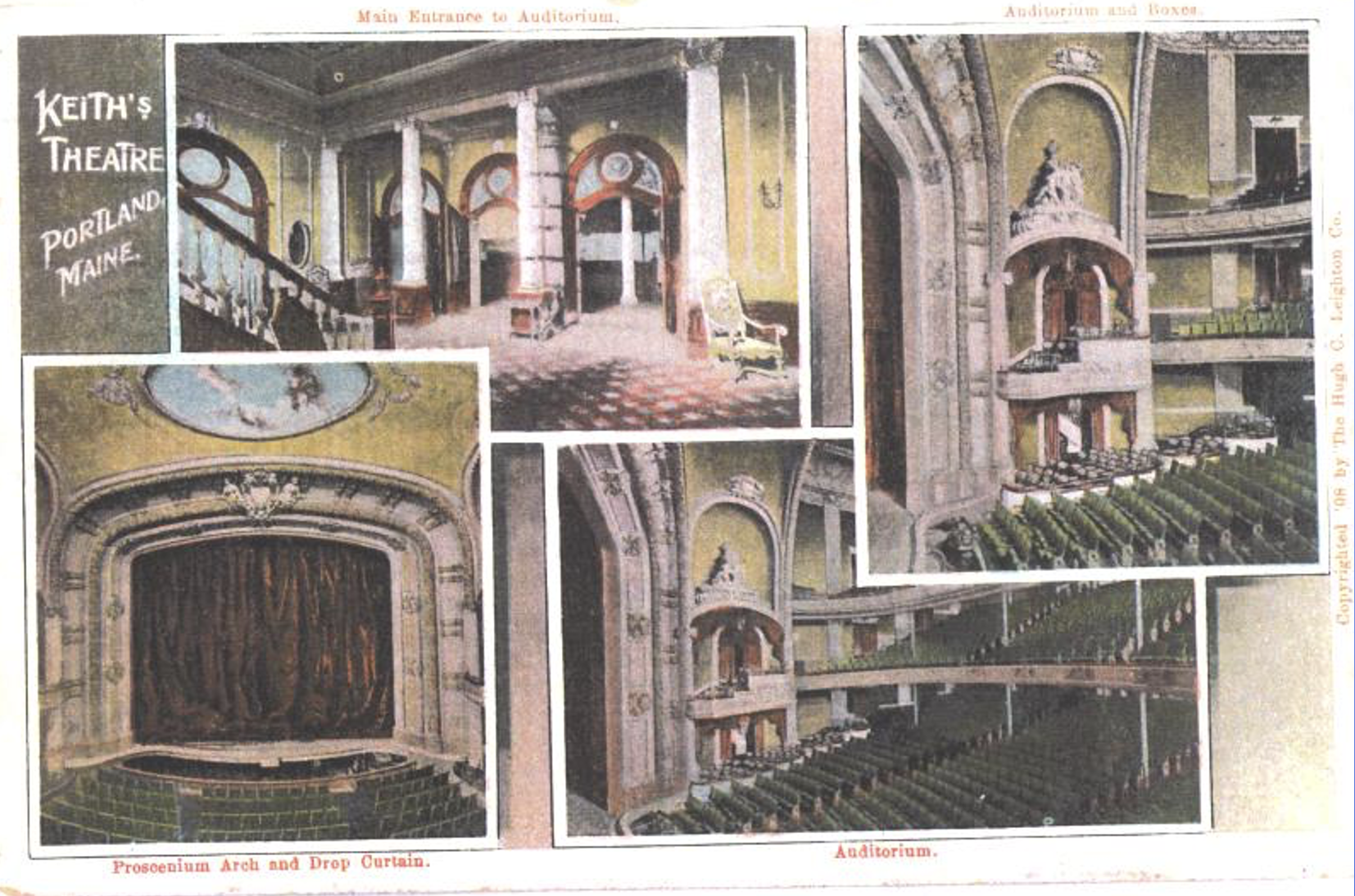
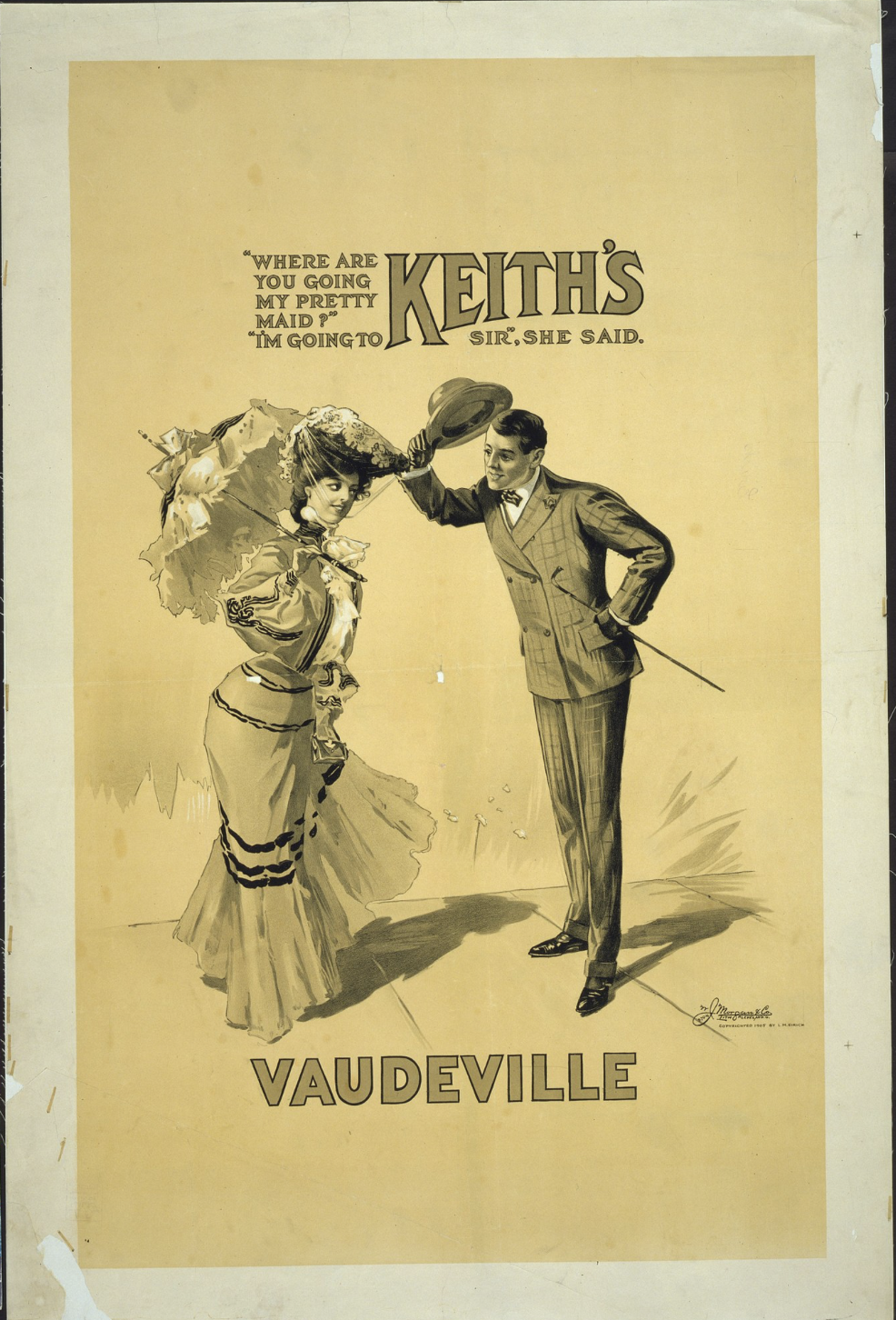
PHOTOS: Interior of Keith's Theater on Congress Street in Portland. Vaudeville flyer for Keith's Theater. The Keith Theater was opened in 1908 on Preble Street. The owner of the theater, B.F. Keith, also owned theaters in Boston, Philadelphia, New York, Providence, Cleveland and Columbus. In 1939, the stage changed owners and was renamed the Civic, whichc operated until 1963.
Shortly after the formation of Local 114, stage hands at the Empire Theatre in Lewiston and the Biddeford City Theater also sought to form their own IATSE locals, but there weren’t enough theaters in their cities to warrant a charter, so Local 114 was able to get a waiver to allow them to join the Portland union. Within a year, the local boasted 50 members as they celebrated its first anniversary with a night of food, drinks and musical and vocal selections at its union hall on Congress Street in 1905.
Local 114 has kept meticulous records over its 120 years in existence, including correspondence with other unions across the country. One letter from the Bangor-based IATSE Local 198 dated Nov. 3, 1916, warned the union about a stage hand named Clarence O’Brien who was expelled from Local 198 for scabbing during a strike in 1914 and was now working in Portland.
“Now as it was his fault entirely that he became expelled, because he refused to stick to his union and scabbed our job, and proved a traitor and deserted us in our time of trouble,” wrote IATSE 198 Business Agent Charles M. Foster. “On Strength of this we feel that we are justified in giving your local notice that this rat is about to thrust his unwelcome presence within your jurisdiction, local 198 has no use for his kind, and we are sure that our sister local 114 will not tolerate such men in Portland.”
In March, 1911, IATSE Local 51 in Houston, Texas sent a letter to Local 114 pleading for assistance to a union stagehand named Harry Spencer who had been arrested for shooting a local comedian named Harry Avery outside a local theater for allegedly pursuing Spencer’s wife.
“Bro. Spencer had requested, yes, begged, even pleaded with Avey to desist in his attentions toward his, Spencer’s, wife, had placed himself on a level with the lowest of things in doing so but all in vain, Avey continued his attentions to Spencer’s wife, until half crazed and desperate, Spencer shot and killed him,” the letter reads.
The letter writer acknowledged that, “murder is a terrible crime and hardly any of us approve it,” but, “Place yourself in this position if you can, and think what you would do.” It's not known whether the Portland local donated to Spencer's legal defense, but he was later acquitted using Texas' “unwritten law” defense, which in those days excused murder in defense of southern notions of female virtue and male honor.
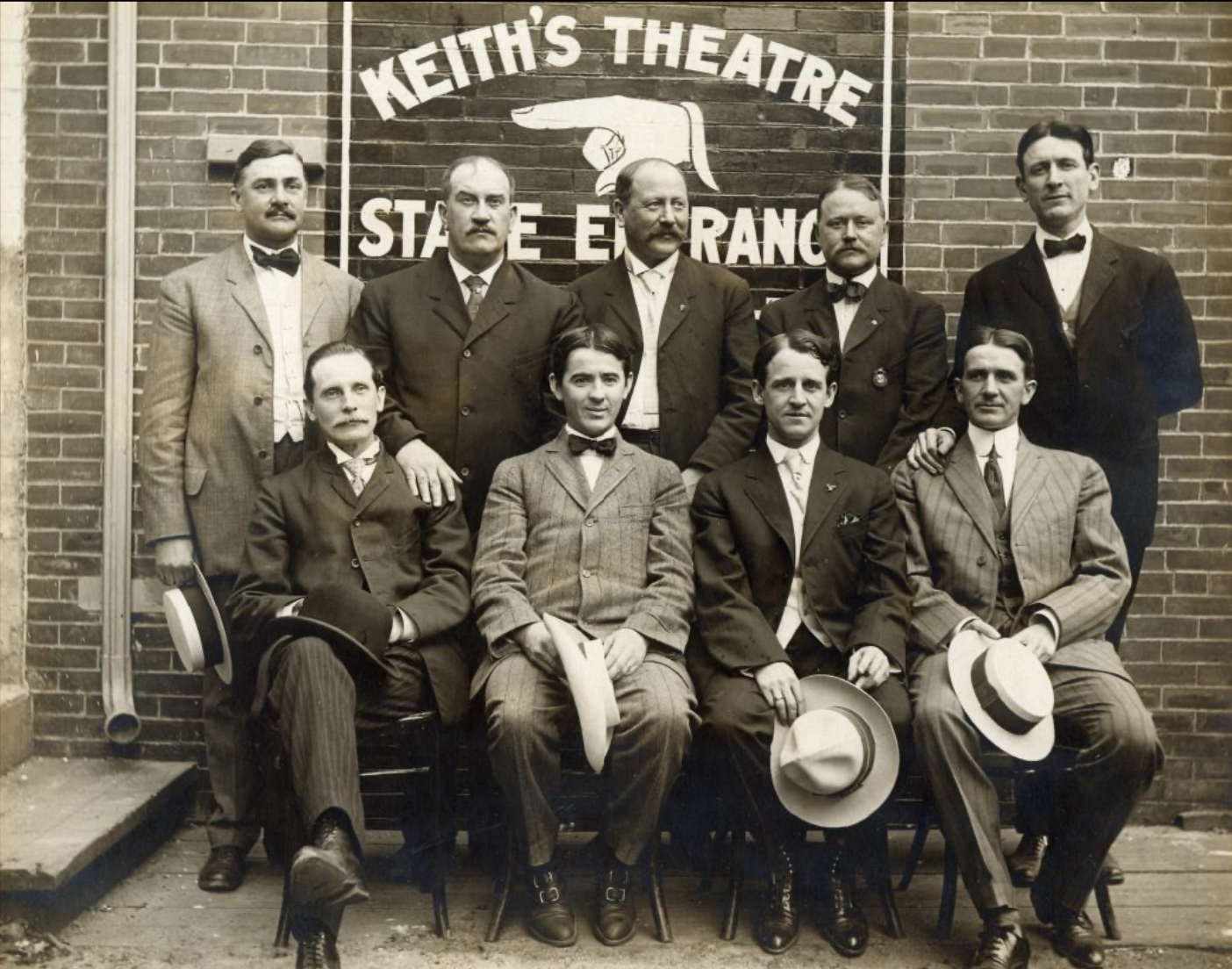
PHOTO: A group of musicians at the stage entrance of Keith's Theater in 1920.
Local 114 meeting minutes from the 1920s include entries about banning drinking and smoking during union meetings, asking members to support legislation that would limit the work week to women and children to 48-hours a week and fining a member for not notifying the business agent when working at a non-union theater in Lewiston. At one point the President’s son Richard Lawler was suspended for a year for getting into a drunken brawl at the Jefferson Theater.
Strikes were rare in those days, but occasionally stagehands walked out as a last resort when negotiations with management broke down. In 1925, a court threw down an injunction against Local 114 for picketing outside Portland and Casco Theaters in solidarity with striking stage hands in Pawtucket, Rhode Island. After motion pictures became popular in the 1920s, film projectionists organized themselves into IATSE locals in Portland, Lewiston and Bangor. Whenever projectionists had a labor struggle, stagehands would typically show up to support their union brothers.
Although IATSE was an affiliate of the craft-oriented American Federation of Labor, in 1937 it held an election to organize Portland’s theaters on an industrial basis, including ushers, scrub-women, cashiers and even managers. It doesn’t appear that the workers prevailed in that election.
By the 1950s, vaudeville was long dead and stage performances were few and far between. The popularity of radio and TV had a devastating impact on live shows. The Bangor and Lewiston stage hands locals folded and Local 114 barely survived the lean years that followed.
“Five or six guys managed to hold on to the union charter by the skin of their teeth,” said former Local 114 Business Agent Doug Born. “If the circus came to town they got hired, but the modern concert industry hadn’t yet come to Portland. One of our members Harry Curran owned Curran Electric and he’d hire our members to put up the Christmas lights downtown.”
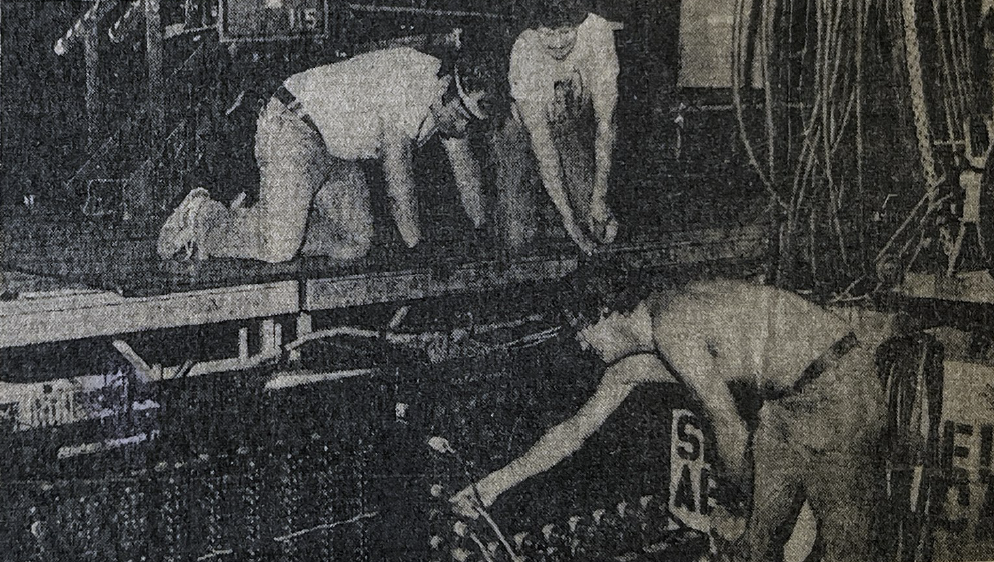
PHOTO: Stagehands Chuck and Ed Romanoff and electrician Joel Brown set up for a Jackson Browne concert on Labor Day, 1980. (Press Herald)
Then in 1977, the Cumberland County Civic Center opened its doors, becoming the largest live entertainment venue in Maine. Local 114 soon organized the civic center and added another dozen members to their ranks. But it wasn’t smooth sailing. In 1980, Civic Center management refused to sign off on an agreement over job descriptions. On Labor Day morning before rock singer Jackson Browne was scheduled to play a sold-out show that evening, Local 114 members gathered for an informational picket outside the civic center waving signs like “The Union Does Mind, We want our contract signed." Browne made clear that he would not play the show without union stage hands. By noon that day, management finally agreed to approve the contract.
“I think it’s lucky for us this is Labor Day,” Martin Schindler, President of Local 114, told a reporter before directing his men back into the arena to prepare the stage. “A lot of people are thinking about it because of what happened in Poland” (a reference to a wave of strikes that broke out in Communist-led Poland that August).
That evening, Brown played the song “Load Out - Stay” as a tribute to the Local 114 stage hands, singing the lyrics, “If the union don’t mind; And the roadies don’t mind; If we take a little time and leave it all behind; Singing one more song.”
When the covid pandemic hit Maine in March, 2020, Born said a lot of older members who had been on the fence about whether to retire “decided to jump off the fence" and left the business. He doesn't want the union to lose that institutional knowledge so he is working to educate younger members about the local’s history and the stories he heard when he joined the union from members who had worked in the 1970s and 80s.
“Now we’ve got some great young members and I’m proud as hell to have brought them in, but they don’t know that history,” said Born.
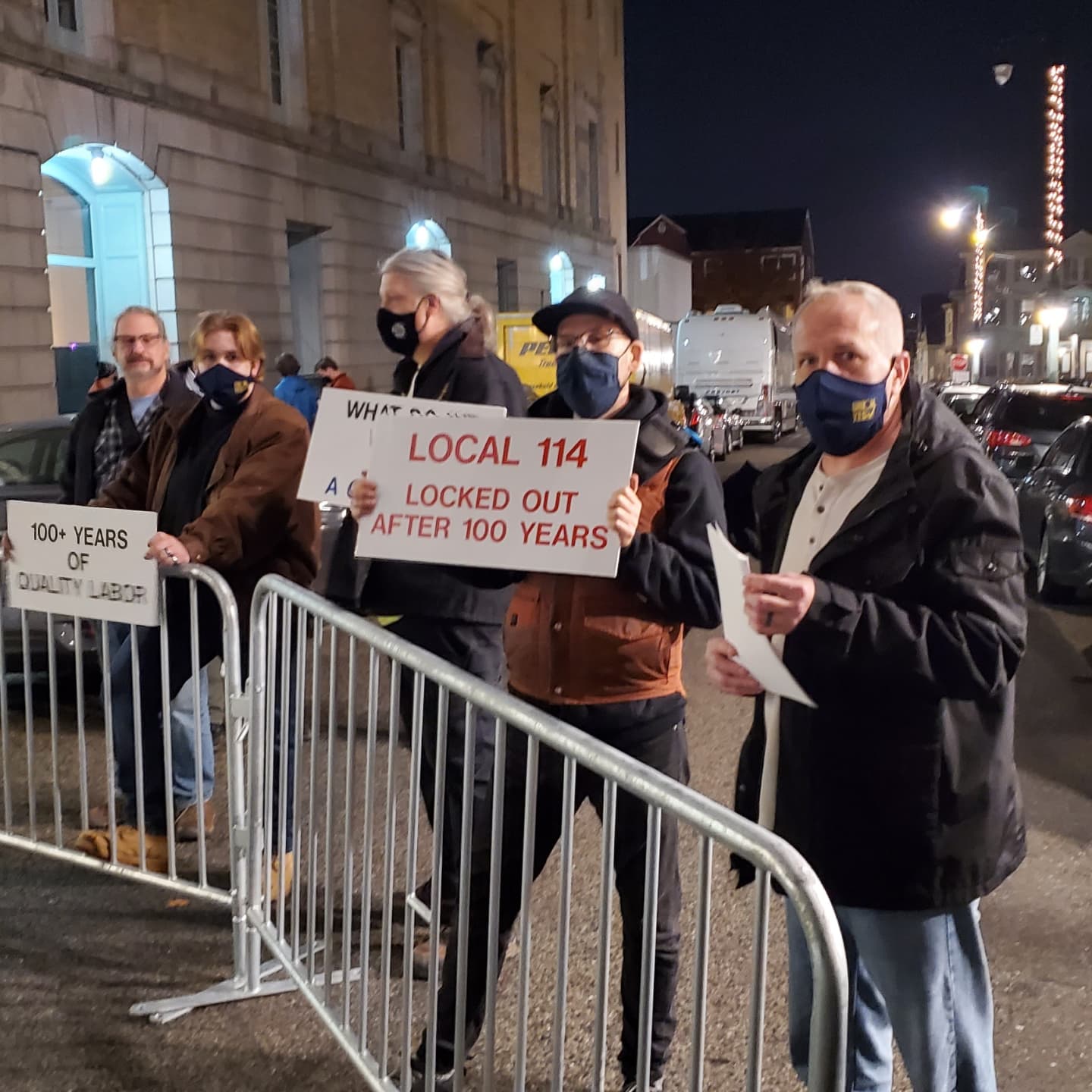
PHOTO: IATSE 114 members picketing Merrill Auditorium in 2021.
From major rock shows, the Portland Symphony Orchestra, operas and ballet to stand-up comedy and trade shows, IATSE 114 crews can be found all over Maine these days working as stage hands and riggers, doing lighting and sound, running fly rails, driving forklifts and loading and unloading trucks at all of these events. Local 114 members work for the Cross Insurance Arena (formerly the Civic Center) and are the de facto house crew for the city-owned Merrill Auditorium. Last year was one of the busiest years ever for the Cross Insurance Arena, which held over 150 events staffed with union labor. Local 114 has also set up and run cameras and the scoreboard for Mariners hockey games since 1977.
In addition, Local 114 members also do a lot of work at the Augusta Civic Center, the Snow Pond Center for the Arts in Sidney and other events throughout the state. In the early days, most of its members lived in Portland, but now its 90 members live all over Southern, Western and Central Maine. The union’s contract with the Cross Insurance Arena expired on July 1, but Local 114 President John York says it continues to make progress in negotiations.
“I’d like it to be going faster, but it’s going well,” said York. “No screaming, yelling or throwing things, which is a good thing. We’re talking nicely and listening to each other.”
After that, he hopes to resume negotiations with the Merrill Auditorium as management stopped responding to contract requests a year ago. In 2021, stage hands held an informational picket to demand that the City of Portland rejoin into negotiations for a fair contract and to halt efforts to undermine their workers by allowing in non-union labor.
York said he’s particularly proud of how many women have joined the local in recent years. In the first 75 years of its existence Local 114 was an all-male union. He said this year’s anniversary party would see “a lot less debauchery” than those early days.
“We have a lot more women these days than there were in those days when everyone smoked, drank and swore,” said York. “Now we have women who drink and swear, but we’ve cut out the smoking aspect.”
